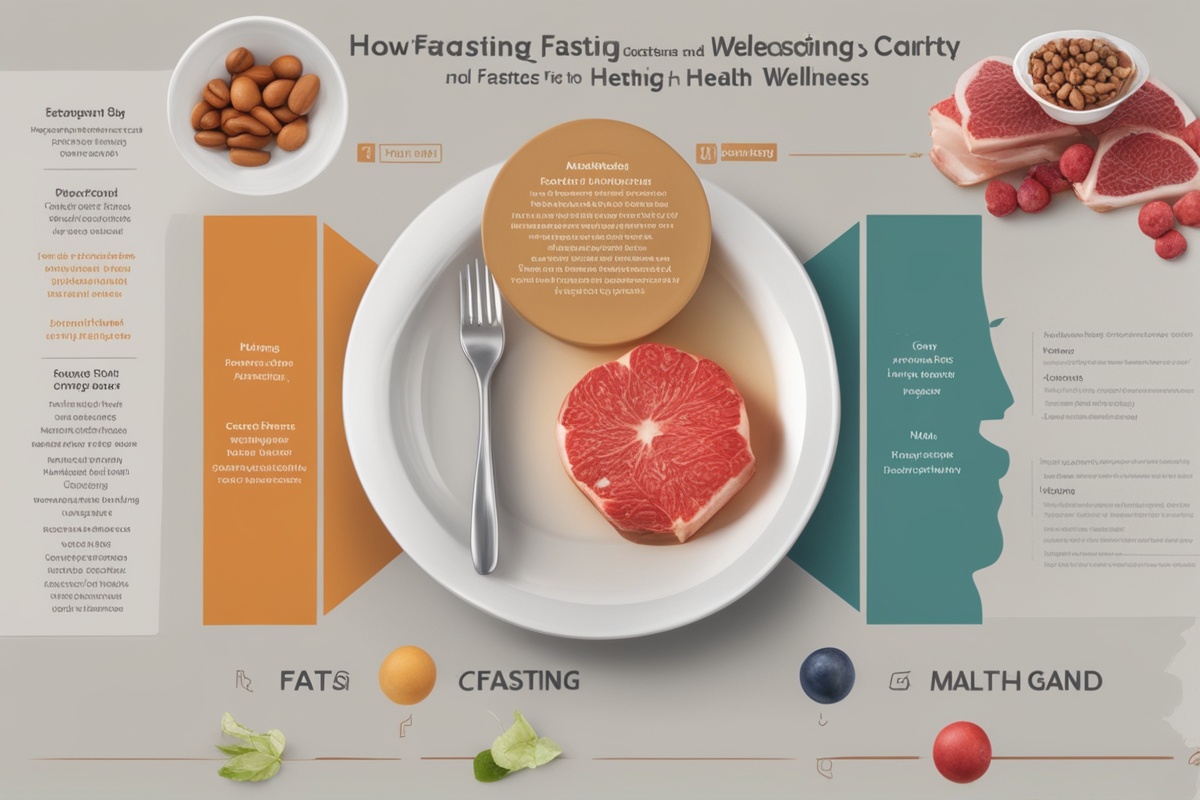Fasting has long been associated with spiritual and physical cleansing, but did you know it can also play a significant role in enhancing mental clarity and concentration? In today’s fast-paced world, maintaining focus can feel like an uphill battle. Distractions are everywhere, and mental fog often clouds our ability to perform at our best. One emerging strategy for boosting focus through fasting has gained traction among professionals, students, and wellness enthusiasts alike. This post explores how fasting can sharpen your mind, improve productivity, and help you achieve mental clarity.
What Is Fasting and How Does It Relate to Focus?
Fasting is the voluntary abstention from food and, in some cases, drink for a specific period. While often tied to religious or cultural practices, fasting has also been studied for its health benefits, including its impact on cognitive function. When you fast, your body shifts its energy from digestion to other processes, such as cellular repair and brain optimization. This metabolic switch can play a pivotal role in boosting focus through fasting, as it allows your brain to operate with heightened efficiency.
During fasting, the body enters a state called ketosis, where it burns fat for fuel instead of glucose. Ketones, the byproducts of this process, are known to cross the blood-brain barrier and provide a stable energy source for the brain. This can result in improved concentration, reduced mental fatigue, and a clearer mind. If you’re new to fasting, start with a simple approach like intermittent fasting, which alternates periods of eating and fasting.
The Science Behind Boosting Focus Through Fasting
Scientific research supports the idea that fasting can enhance cognitive performance. Studies have shown that fasting triggers the production of brain-derived neurotrophic factor (BDNF), a protein that supports brain health and neuroplasticity. Higher BDNF levels are associated with improved memory, learning, and focus. Additionally, fasting reduces inflammation in the body and brain, which is often a hidden culprit behind mental fog and distraction.
Another key mechanism is autophagy, a cellular cleanup process activated during fasting. Autophagy removes damaged cells and toxins, promoting overall brain health. By clearing out this “cellular debris,” fasting creates an optimal environment for mental sharpness. For those looking to dive deeper into brain health, check out our post on Brain-Boosting Foods for Mental Clarity to complement your fasting journey.
Types of Fasting for Enhancing Mental Clarity
Not all fasting methods are created equal, and choosing the right one can make a significant difference in boosting focus through fasting. Here are a few popular types to consider:
- Intermittent Fasting (IF): This involves cycling between periods of eating and fasting, such as the 16/8 method (fast for 16 hours, eat during an 8-hour window). IF is beginner-friendly and has been shown to improve focus by stabilizing blood sugar levels.
- Water Fasting: A more intense approach, water fasting involves consuming only water for a set period (typically 24–72 hours). It’s best done under medical supervision but can lead to profound mental clarity.
- Time-Restricted Eating (TRE): Similar to IF, TRE limits eating to a specific time window each day, helping regulate circadian rhythms and enhance brain function.
Experiment with these methods to find what works best for you. If you’re curious about balancing fasting with stress management, explore our guide on Stress Reduction Techniques for Better Focus.
Practical Tips for Boosting Focus Through Fasting
While fasting offers incredible benefits for mental clarity, it’s essential to approach it thoughtfully to maximize results. Here are some practical tips to help you succeed:
- Start Slow: If you’re new to fasting, begin with shorter fasts (12–14 hours) and gradually increase the duration as your body adapts.
- Stay Hydrated: Dehydration can worsen mental fog, so drink plenty of water during fasting periods.
- Break Your Fast Wisely: Avoid heavy, sugary meals when breaking your fast. Opt for nutrient-dense foods like vegetables, lean proteins, and healthy fats to sustain mental clarity.
- Listen to Your Body: Fasting isn’t for everyone. If you feel dizzy or unwell, stop and consult a healthcare professional.
For additional strategies on maintaining energy during fasting, check out our article on Energy-Boosting Habits for Mental Clarity.
Potential Challenges and How to Overcome Them
While fasting can be a powerful tool for boosting focus, it’s not without challenges. Common hurdles include hunger pangs, irritability, and initial fatigue. These side effects often subside as your body adjusts, but they can be discouraging at first. To manage hunger, try distracting yourself with light activities like walking or meditation—both of which can further enhance mental clarity. For more on mindfulness practices, read our post on Meditation Techniques for Better Focus.
Another challenge is social eating. If fasting conflicts with meals with family or friends, communicate your goals and plan your fasting window accordingly. Lastly, avoid overexerting yourself during a fast. Focus on low-intensity tasks and save high-energy activities for your eating windows.
Long-Term Benefits of Fasting for Mental Clarity
Beyond immediate focus improvements, fasting offers long-term cognitive benefits. Regular fasting has been linked to a reduced risk of neurodegenerative diseases like Alzheimer’s, thanks to its anti-inflammatory and neuroprotective effects. It also promotes better mood regulation by balancing hormones like cortisol and insulin, which can indirectly support sustained focus.
Incorporating fasting into your routine can create a ripple effect, enhancing not just focus but overall mental resilience. Pair this practice with other clarity-boosting habits, such as those discussed in our guide on Daily Habits for Mental Clarity, for a comprehensive approach to brain health.
Disclaimer: The information provided in this article is for educational purposes only and should not be considered medical advice. Fasting may not be suitable for everyone, especially individuals with certain medical conditions, pregnant or breastfeeding women, or those with a history of eating disorders. Always consult a healthcare professional before starting any fasting regimen to ensure it is safe and appropriate for your individual needs.
References
- Mattson, M. P., Moehl, K., Ghena, N., Schmaedick, M., & Cheng, A. (2018). Intermittent metabolic switching, neuroplasticity and brain health. Nature Reviews Neuroscience.
- Harvard Health Publishing. (2018). Intermittent Fasting: Surprising Update.
- Mayo Clinic. (2021). Intermittent Fasting: What Is It, and How Does It Work?
- de Cabo, R., & Mattson, M. P. (2019). Effects of Intermittent Fasting on Health, Aging, and Disease. Journal of Clinical Investigation.
- Longo, V. D., & Mattson, M. P. (2014). Fasting: Molecular Mechanisms and Clinical Applications. Frontiers in Aging Neuroscience.
This content is for informational purposes only and not a substitute for professional advice.






